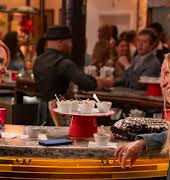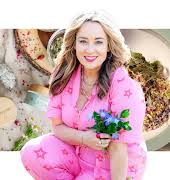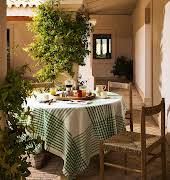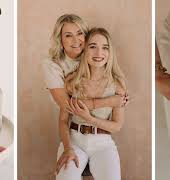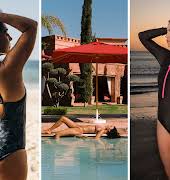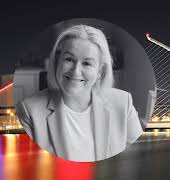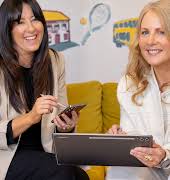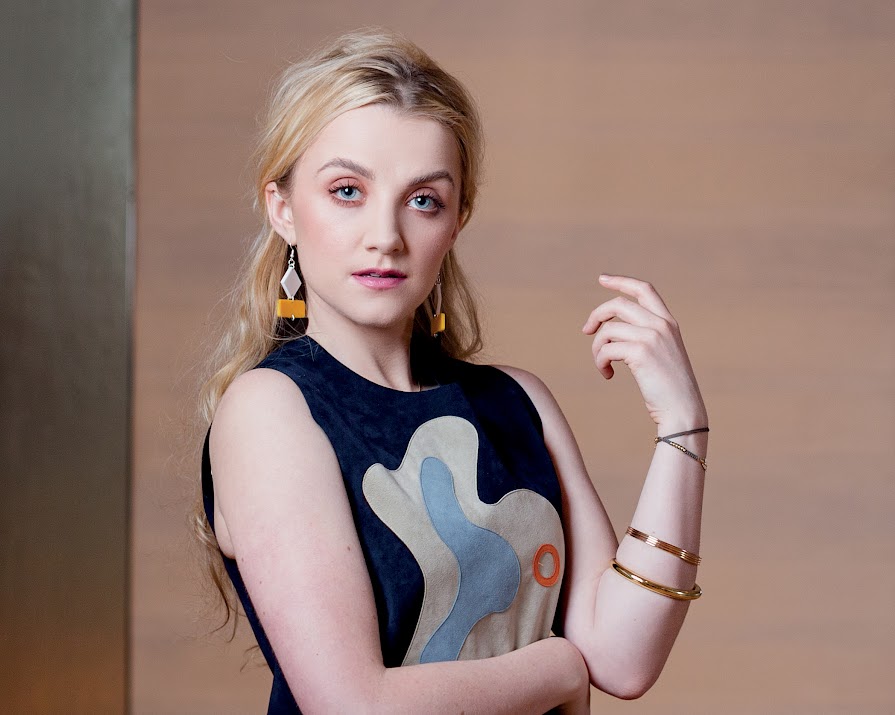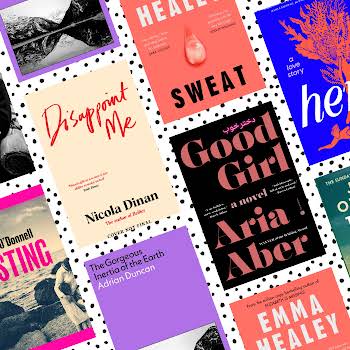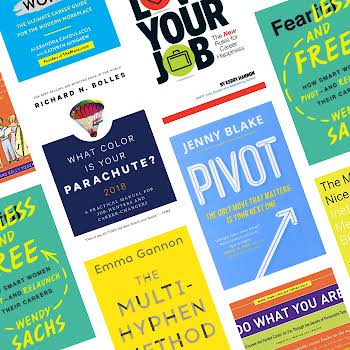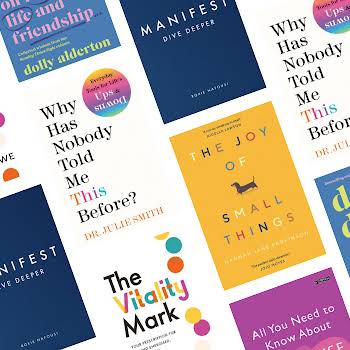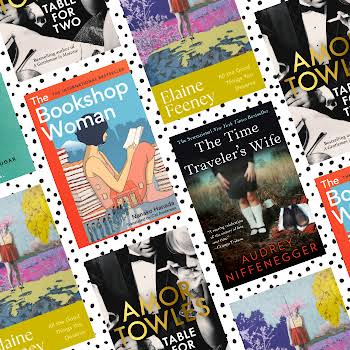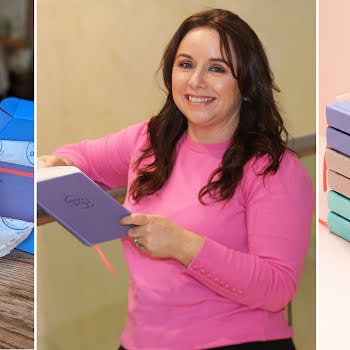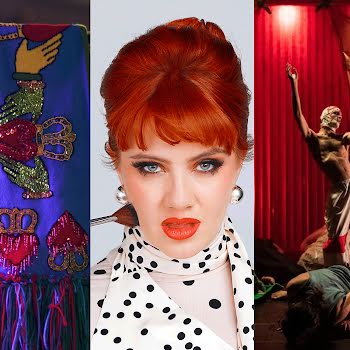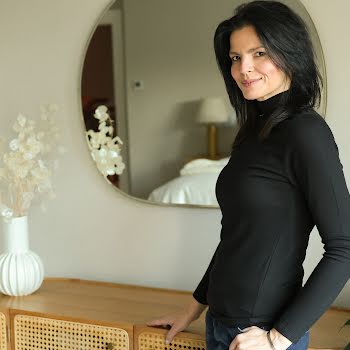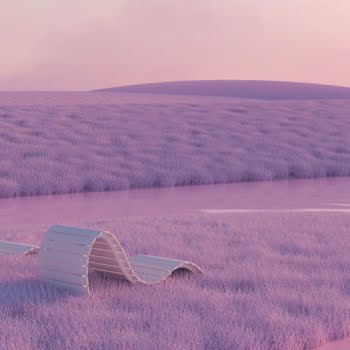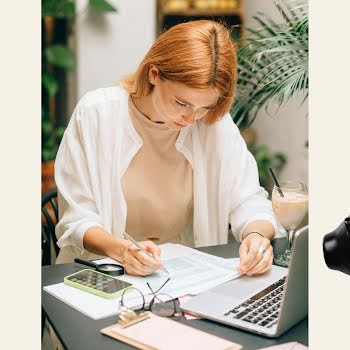‘I had a lot of anger and resentment towards how my treatment of my eating disorder was handled’: Evanna Lynch on the cathartic nature of writing her memoir
By Meg Walker
Evanna Lynch talks to Meg Walker about her new memoir, and why creativity is essential to her wellbeing.
You may have heard through various media outlets over the last week that Irish actress Evanna Lynch – who played Luna Lovegood in the Harry Potter films – published her memoir, detailing her battle with anorexia at a young age. One week on, and The Opposite of Butterfly Hunting is already generating a lot of interest, and not just for its famous author – it just so happens that acting is just one of Evanna’s many extraordinary talents.
Many of us, myself included, know someone affected by an eating disorder. A severe mental health issue with serious potential consequences – they have the highest mortality rate of any mental illness – eating disorders surged during lockdown. Bodywhys saw a 110% increase in users of their online support group in 2020 alone; while the Health Research Board (HRB) report published in July 2021 showed a 32% rise in adult admissions to psychiatric units and hospitals in 2020, and a 61% rise in admissions for children and adolescents.
Someone very close to me was among that group admitted to hospital in 2020 and was diagnosed with anorexia. So when I heard about Lynch’s memoir, I had a particular curiosity to read her story, in her own grown-up words, told more than a decade and a half after her recovery.
An avid reader since childhood (she was a devoted Harry Potter fan well before she first appeared onscreen as Luna Lovegood just ahead of her 16th birthday), the now 30-year-old Louth-born debut author clearly has a flair for writing, as her raw and compelling memoir powerfully – and colourfully – illustrates the deep inner thoughts of a young person with anorexia, while at the same time carefully avoids glamorising the illness or sharing details she personally knows might act as a trigger to anyone reading it who might be struggling themselves.
When I chatted to Evanna earlier this week, I commended her on it and told her that her book is serving as an essential tool in helping me better understand my loved one’s own illness. And I thanked her for that.
Here, she talks about the motivation for sharing her story, and how creativity, veganism and self-worth have all helped her to truly live a happy life…
At what point did you realise you had this story to share with the world, how did you find the process of writing it, and where do you find inspiration to get words down onto paper?
I’ve been talking about this topic for years, and sometimes part of that is my own doing, but part of it was just that people couldn’t really leave the subject alone. I’d just been getting questions about it and that made me think really deeply about the topic. And there was always the temptation in interviews to just say, “no comment” or “I don’t want to talk about that” but I found I couldn’t just leave it there, that I actually had a lot to say, and I got a bit frustrated by how my story was maybe simplified or misrepresented. And so that was really the motive to write the book because it was just like, “You know what, it’s already out there.” It is private stuff, but I’d rather it was out there in my own words. So I knew I had to write it, and I’ve been meaning to for the last few years. And I finally got the opportunity to do it when lockdown happened.
It was also to speak up for my 11-year-old self, who didn’t have the words, who couldn’t articulate her feelings and what she needed at that time.
The actual writing of it was a bit miserable because I was on my own in my apartment doing that most of the time, and life during lockdown was joyless, as it was for so many people; but it also felt like a relief to finally be doing it. I think I felt like, if I had never written this story, it would be hard to fully move on and let it go. I’d always feel a sense of, this is something I should put into words. When I finally got the discipline of writing in place and was doing it every day, I felt quite liberated. And when the book was finally done, I just felt this huge weight lifted.
What did you learn about yourself in the process of writing it?
Well, I learned that I actually had a lot of anger and resentment towards how my treatment of my eating disorder was handled, so it was almost like writing the book was righting some wrongs. It was to try and find compassion for the people who maybe hadn’t handled it the best. And it was also to speak up for my 11-year-old self, who didn’t have the words, who couldn’t articulate her feelings and what she needed at that time.
I was really shocked by how good it felt to do those things and to even admit this is my last piece of recovery. For years, I sort of said, “No, I recovered when I was 13.” And I think part of that was the shame – people who recover from anorexia have a lot of guilt and shame about leaving that behind. You have a lot of grief. I think I realised that I have to own that I went through that, and that was a part of me… and also that it isn’t anymore. Now I feel like I can talk about it very freely and not feel this emotional charge. I feel like I’ve made things good with my younger self, and that’s all I needed to say, really, on the topic.
I think I have this restlessness and this drive, and if I don’t manage it, if I don’t find an outlet for that, it kind of turns inward, and that becomes self-destructive.
What are you hoping it’ll give to readers?
I hope it will inspire them to pursue a creative path, to not give in to those urges, those impulses, to focus on perfection and to get obsessed with their body. I really do believe that it drains one of their creativity and their lifeforce. I just hope that people, once they process the book, that it will give them the courage to fully embrace their creativity and to do the things that they’re afraid of, but that they know their heart is kind of crying out to do. That, to me, would be a successful book – if it inspires people that way. I want it to really give readers a shake, and hopefully give them a shot of courage.
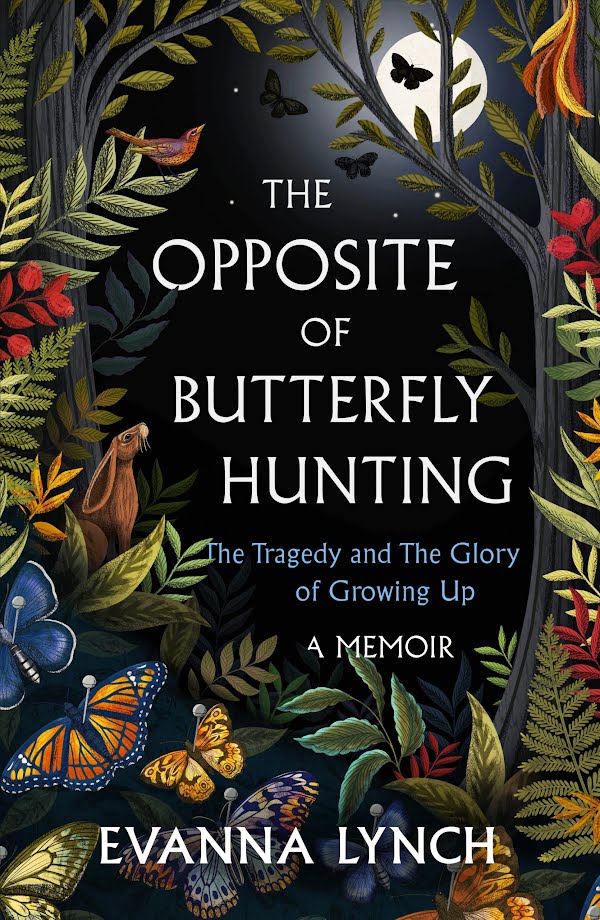
You dedicated the book to the late Irish writer and filmmaker Simon Fitzmaurice, who died of motor neurone disease three years after writing his own memoir, It’s Not Yet Dark. I know working with him on My Name is Emily was a very important time for you. Were you influenced by his writing?
Oh, definitely. Simon was a fierce writer, and so funny and so warm. I like writers who delve really deeply into the inner world of their characters, so Simon was hugely inspirational. He just created these characters that I fell in love with, and he was so poetic. There was the humanity, there was the liveliness, and there was the love of words. Just the fact that he wrote when there was everything against him; there was every excuse in the book not to write, to procrastinate and doubt, and he didn’t. Sometimes, when I’m feeling sorry for myself or think I have so many things I have to do, I just think of Simon, and how his body was literally stopping him from picking up a pen, and he wrote with his eyes. You know, that’s incredible. When I think that, like, nobody has any excuse – you just have to go and do it.
What would you really like people to understand about eating disorders – what the person is really going through inside their head that they cannot articulate?
I’d like people to understand that [eating disorders] are coping mechanisms and that the people going through them – it’s just their way of feeling okay in the world, of feeling safe, that there is an enormous amount of pain in that person. And it’s not something to feel guilty about – as a parent or as a friend or a supporter. It’s just there’s this pain, and they found this thing that helps them feel a bit numb and helps them feel like they’re coping in the world. So, if you’re just kind of trying to lead them into recovery and force them through it, you’re just kind of leaving them to deal with this pain by themselves.
It needs to be about recovering the self as much as recovering the person’s health.
You can’t just recover for the sake of it, you can’t just say, “Right, we’ll get you into a bed and feed you up, and that’s enough” because you’re going to need them to cope with this pain by themselves. So it has to be, “Okay, this is your coping mechanism. How can we find a safe way that you can let this go? How can we find new, healthier coping mechanisms for you and gently incorporate them into your life? And in the meantime, help you rebuild your self-esteem and yourself because that’s really been eroded by the eating disorder, that’s all been kind of taken away, it’s all faded.” It needs to be about recovering the self as much as recovering the person’s health. And obviously, that bit is very important too – you need to do both, but for their soul and so that recovery is lasting and effective, you need to do deeper work and help them find a reason to want to stay alive, and a reason to let go of their eating disorder, so they don’t need that coping mechanism. I really do feel that, because people on the outside kind of demonise an eating disorder and see it as a bad thing, I think you need to be quite compassionate and gentle in helping them let go of that, and deal with the stuff underneath – the pain – because otherwise, it’s an open wound and then they might find other destructive coping mechanisms.
I also want to make parents feel that I understand that this is so hard, that when it’s your child, you’ll do anything to get them back to health. I wrote this book a lot for my mother as well to kind of answer her – because she used to ask me, “What did I do or what did I not do?” And it was like, “Nothing! There was nothing you did that caused this.” So, don’t take that on, don’t take it as your fault, or your responsibility. It’s their journey. For whatever reason, they’ve chosen this path, and all you can do is really support them and try and give them the courage to make other choices. But ultimately, it has to be their choice to recover.
What do you think about the language that we all use in society around weight and food and all those other things that trigger somebody battling with an eating disorder?
I think we have to be really careful of that, and how we talk about our own bodies. You can pick up on how other people treat themselves, like if they demonise fat or if they say there are good and bad foods or, “Oh, I deserve this, I’m going to treat myself” or, “Oh, I was bad today, so I don’t get to have this cake.” I think they can take that on and they can translate it to themselves being good or bad or deserving, being worthy of food, like that’s a very twisted idea. I think we have to be really conscious of that and examine it in ourselves so that we don’t hurt other people. I’ve done it so many times where I will say, “Ugh, I’m getting fat.” And then there’ll be a friend near me who’s maybe a few dress sizes bigger than me and it’s like, “God, I must have just really hurt that person by being cruel to myself that way.”
And then going vegan, it took the focus off, like, what the food will do to my body, it took the focus off the aesthetics, and it made it about willingness, choice, “Oh, this is who I want to be in the world, this is what I want to represent, and this is how I want the world to be.”
And, you know, what is so wrong with fat? Why is it painted as evil, and why is thin so aspirational? We have to just find better reasons for loving ourselves. So, yeah, I’m definitely careful, but I’m not perfect. I do, however, try and celebrate food and celebrate health, and I really do think that there aren’t good or bad foods – although, it’s a little bit different for me, as I’m vegan, so I don’t see animals as food; but this idea that certain foods are “good” and others are “bad” – I try not to do that. And for some people – say, those who are in recovery – fattening foods are healthy foods. And for some people, like maybe those with diabetes, sugar isn’t healthy for them – it’s all relative. So, we have to stop putting those kinds of blanket labels about what’s good or bad in food, and we have to be conscious of the fact that everyone’s bodies are different, and we’re all on very personal journeys – that food is a very personal, intimate thing.
Has becoming a vegan helped repair your relationship with food in some way?
Yeah, 100%. I went vegan in my early twenties, and I’ve been eating normally and healthily a long time now, but I actually still had those labels – I still had good or bad foods – and you can kind of get away with doing that, you can still be healthy and eat like a “normal” person, and nobody notices, but it was still quite messed up in my own head. And then going vegan, it took the focus off, like, what the food will do to my body, it took the focus off the aesthetics, and it made it about willingness, choice, “Oh, this is who I want to be in the world, this is what I want to represent, and this is how I want the world to be.” And seeing all vegan food as neither good nor bad, just about compassion and about creating a more compassionate world, it’s totally removed all the labels for me. It made me feel joyful about eating foods that I previously had seen as bad, like cakes or things like that. Because again, it was like, I’m supporting people who I really admire and who I want to help. It’s weird – I didn’t put this in the book, but it was a defining moment for me – when my mum came to visit me when I was living in LA (that’s when I had gone fully vegan) I had cooked all this food for her, and she just looked at me at one point and she was like, “Wow, you’ve really fixed your relationship with food!” And I had little moments of like, “Oh no, I’m out of control and too normal around food”, but then it was like, “No, I like this!”
Actually, one of the girls who I was in treatment with – Ruby, in the book – she’s now vegan, Bruna at the end of the book is vegan, and they’re both people who are very sensitive and they struggled with eating disorders, and have found that with veganism, there’s a holistic lifestyle that makes you think about nourishing your body and also caring for the earth, it’s about living in a very mindful way, and they’ve both said, “Gosh, I wish I discovered this earlier. It would have maybe made food feel a bit more safe.” But I also would be very cautious, I would never say that that’s the answer for everyone because for some people it can feel too restrictive and like deprivation. All I will say is that I know that you can be vegan in a way that feels very abundant and very joyful and it doesn’t feel like you’re giving anything up. But, yeah, it can be hard. It depends on where you live as well. For some people, they just don’t have access to those foods, and so I think you have to put your health first.
What vegan skincare and beauty brands are you loving at the moment?
I love The Skin Nerd – she’s got a great range of vegan products. And there’s another brand I love called Earth Harbor, which is an American brand, and it’s quite sustainable, and they really care for the oceans. And Honua, which is a Hawaiian skincare brand – all sustainable packaging. What’s been nice about exploring vegan beauty is that so many of them are independent women-owned brands, and you just know that the people who make them put so much attention and care into every detail.
I think for years I had a bit of that “child star” thing of waiting for people to tell me what to do or when I was allowed to work, because when you’re 14 and everyone’s doing things for you, and everyone’s interested in you, you kind of sit back a bit and go, “Cool, the adults are gonna keep telling me how to run my life.”
You write about how your editors were advising you that you were particularly harsh on your younger self in the book. And I know you’ve spoken about anonymously trolling yourself online when you were a teenager. Now, aged 30, and hugely accomplished, what do you personally think of Evanna Lynch, and what do you want for her?
I definitely need to stop with all the self-doubt. The whole people-pleasing thing does get in the way sometimes. I think as an artist, as a creative, it’s especially important to be able to choose out people’s opinions of you. I suppose I just want to keep nurturing my own artistic voice. JK Rowling is a huge role model to me – that she uses her creativity and her gift for storytelling to really shake the world. I’ve had a lot of guilt about not doing enough activism like there are so many horrible things happening in the world, and the thing that really breaks my heart, in particular, is factory farming. And sometimes I feel like I should just be on farms doing undercover activism – they are the real heroes. But I actually don’t think that’s the best use of my time and the privileges I have in life. So, yes, JK Rowling is a huge role model, the fact that she does these incredible things with her gift for storytelling and as a writer, but then she puts it all back into her causes, her charitable efforts, like Lumos. So, yeah, I want to push myself to do more of that and really just take more control of my career, to have more autonomy. I think for years I had a bit of that “child star” thing of waiting for people to tell me what to do or when I was allowed to work, because when you’re 14 and everyone’s doing things for you, and everyone’s interested in you, you kind of sit back a bit and go, “Cool, the adults are gonna keep telling me how to run my life.” And so I think my opinion of myself is better when I step into more of my power and be an adult and make decisions, and a big part of that is doing more writing.
And what would you like to tell younger people who might be struggling with their own sense of self-worth?
I would say, I know the negativity is so compelling, and I know the mean things you think about yourself, and that you see other people saying or you feel other people thinking about you, they can seem like the truth, but I would just say, honesty can be kind too.
I used to really believe the negative thoughts were the truth, and it took me a long time to realise that that’s only one perspective and that’s one path, and that the more I give my attention and lend an ear to those people, the more it turns me into somebody I don’t want to be.
There really are two perspectives: There is the mean thought, and then there is a way to see it in a positive way. And if you keep entertaining the negative thoughts, if you hang around people who are nasty to you and who make you feel a bit shit about yourself, it will lower your opinion of yourself, and it’s just going to keep getting worse; whereas, if you actually make a strong choice to only spend time with people who uplift you, who make you feel inspired, make you feel good about yourself, and if you choose influences – you know, unfollow the people on Instagram who make you feel bad, and follow people who make you feel inspired and empowered – if you keep making those positive choices, your opinion of yourself will get better, you’ll find people who make your life feel full, and your life will blossom. As a young person, I used to really believe the negative thoughts were the truth, and it took me a long time to realise that that’s only one perspective and that’s one path, and that the more I give my attention and lend an ear to those people, the more it turns me into somebody I don’t want to be. So, try and start to believe in those positive voices, and fill your life and your feed and everything with those things.

